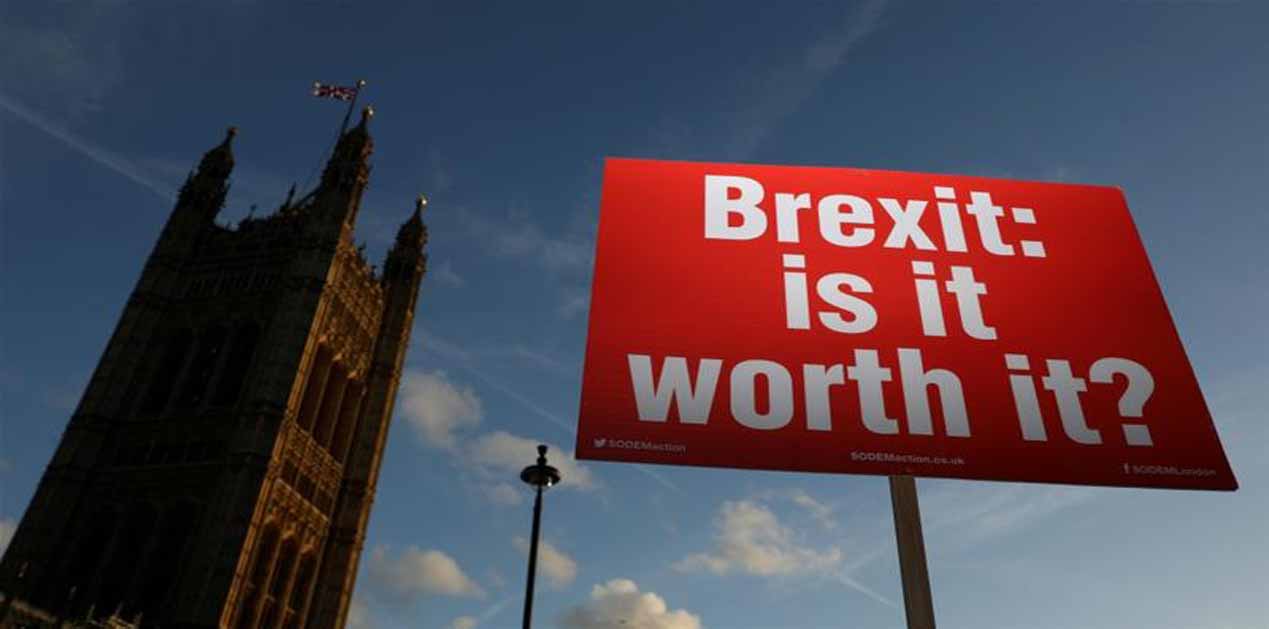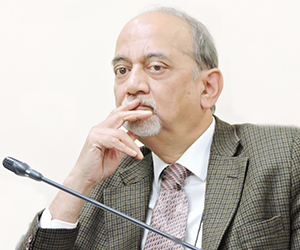Mrs May has postponed a meaningful vote on Brexit deal to 12th March. She assured the Parliament that in case the deal negotiated by her government is rejected, the MPs will be given a chance to vote whether they approve crashing out of European Union (EU) without a deal. If this is rejected, they will get a chance to vote for extension of the current Brexit deadline of 29th March. This is stepping back from the brink. Earlier, she wanted the House of Commons to make a binary choice between her deal and Brexit without a deal. If the deal secured by her government failed, Britain would have exited EU without a deal.
Mrs May’s gamble was that fear of a no deal Brexit would push the MPs to approve the deal she had secured in Brussels. Sensing defeat, she has changed the options and choreography. This is a reluctant concession in face of near revolt from government benches, including the Cabinet Ministers. However, expanding the spectrum of choice would complicate the picture. There is not only a wide gulf between the government and the opposition, but both Conservative and Labour parties are divided within. The Prime Minister could not muster majority for her proposal; the Labour proposal for Brexit was defeated by a majority of 323 to 240, a wider margin than the last time. Labour leader Corbyn has now given the call for second referendum, widening the chasm between government and opposition position.
What both sides tacitly approve is extension of deadline beyond 29th March. This in turn complicates EU’s choices. The extension would be premised on the belief that a better deal could be secured from EU. Brussels has already refused such an outcome earlier. Re-opening the question would clash with timelines for European Parliament elections in May. Acting on the assumption that UK would exit from EU, 27 of the 73 seats in the European Parliament have been redistributed to other member states, while the remaining 46 have been held in reserve for future enlargements 1. Restoring status quo ante would invite opposition from the member states who have received additional seats. The alternate formula for adding 73 seats to accommodate UK would mean treaty revision2. This is extremely complicated process involving revision of domestic legislation already passed. To do so temporarily till UK makes up its mind is out of question.
If the Brexit dead-line is to extended for longer period beyond May, this could impinge on the issue of budget allocation for 2021-27. Should the next budget be based on UK continuing as an EU member or without it?
Labour Leader Corbyn may be reflecting a demand by increasing number of intelligentsia, and business leaders that Britain’s exit from EU would cause major economic setback for EU. While the strength of Brexit lobby may have waned with realization of hard realities, it still has substantial support in the Parliament, which rejected Labour’s version of Brexit – joining an EU Customs Union - with a wider margin than before.
Brexit as negotiated by Mrs May involves staying in customs union to avoid a hard border between Ireland and Northern Ireland, which could unravel Good Friday Agreement. Shifting the border south between Northern Ireland and UK in order to preserve this agreement will be an anathema to Unionists. Britain’s dilemma underlines both the success and failure of the EU. EU went beyond a customs union and a common market to evolve into a political union, which subsumed sub-nationalism more easily than was possible within individual member states. This was true not only of Irish problem, or Scottish question, but also the issue of Catalonia in Spain. The demand for Catalonian self-determination last year saw EU member states rallying around to support Spanish position. While EU’s goal reiterated in successive EU Summits was ‘ever closer union’, the member states want to preserve it as an inter-state body, not a supra-national entity.
The goal of ‘ever closer union’ involved abolishing restrictions on movement of people within EU. Influx of East European workers was the immediate cause for Brexit. In this, UK was less than fair to other EU members, who were at the same time struggling to cope with migration from Syria and Africa. Absorbing fellow Europeans should be less onerous task than accepting large number of people from a different cultural background.
References
- Extending Article 50: One step too far for the EU? By Larissa Brunner, European Policy Center, http://www.epc.eu/pub_details.php?cat_id=4&pub_id=9047
- Extending Article 50: One step too far for the EU? By Larissa Brunner, European Policy Center, http://www.epc.eu/pub_details.php?cat_id=4&pub_id=9047
Image Source: https://www.aljazeera.com/mritems/imagecache/mbdxxlarge/mritems/Images/2018/12/1/043df6b7f5984425bcf9e3186ba447cf_18.jpg










Post new comment